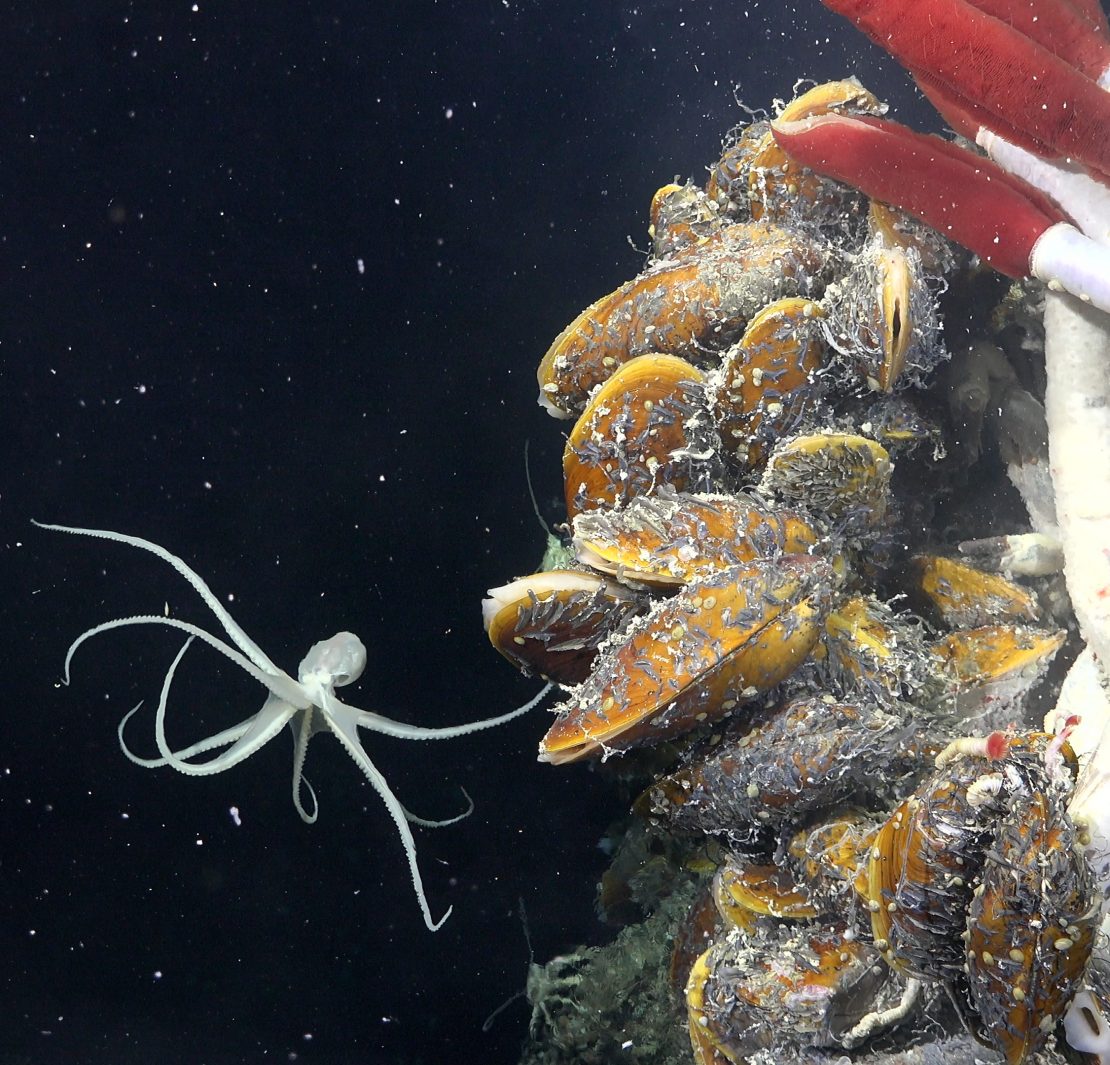If there is anything more terrifying and cryptic than the dark void of outer space above us, it’s the ocean. In the latest of cryptic discoveries, deep-ocean scientists have unearthed a new ecosystem filled with bizarre creatures, beneath an undersea volcano.
Researchers on board the nonprofit Schmidt Ocean Institute’s research vessel Falkor (too) in Panama plumbed the depths off Central America’s Pacific coast to study species ranging from symbiotic bacteria in deep-sea clams to the temperature limits of tiny copepod crustaceans. Using a deep-sea remotely operated vehicle (ROV), they were able to turn over sections of volcanic crust to reveal a new-to-science ecosystem swarming with worms, snails, and chemosynthetic bacteria that are seemingly thriving despite living in 25°C water.
It’s the first time scientists have found life underneath hydrothermal vents, which are hot volcanic springs found along the seabed. The team also found evidence that surface species like tubeworms can travel underneath from the surface using vent fluid, enabling them to expand their range. The discovery adds a new dimension to hydrothermal vents, showing that their habitats exist both above and below the seafloor. Scientists have spent the past 46 years studying hydrothermal vents and microbial life in the subsurface, but have never looked for animals under these volcanic hot springs.
“Our understanding of animal life at deep-sea hydrothermal vents has greatly expanded with this discovery, ” expedition lead Dr Monika Bright of the University of Vienna said in a statement. “Two dynamic vent habitats exist. Vent animals above and below the surface thrive together in unison, depending on vent fluid from below and oxygen in the seawater from above,” she said.
This discovery has only confirmed what scientists have been saying for a long time – that the deep sea is unpredictable. More than 80 per cent of the ocean remains unexplored to this day – we’ve actually mapped a far greater percentage of the surfaces of the Moon and the planet Mars than we’ve of our own ocean floor. This expedition has reinforced an urgency to explore more of the ocean, especially as deep-sea mining for the metals needed to supply the green battery revolution becomes more popular. Many argue that deep-sea mining is extremely harmful because we don’t exactly know how many unexplored and fragile ecosystems and habitats we might be destroying in the process.




